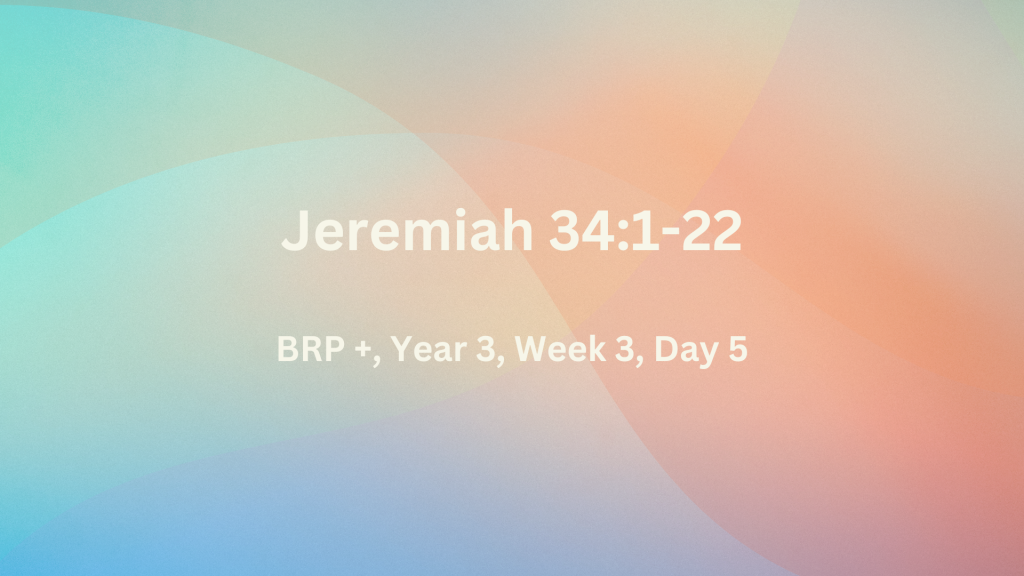Jeremiah 34:1-22
Q.1. Under what circumstances did Jeremiah give this prophecy? What surprising message was given to King Zedekiah? – (Jer.34:1-7)
Jeremiah was given this message – when Nebuchadnezzar king of Babylon and all his army, with all the kingdoms of the earth that were under his dominion and all the peoples, were fighting against Jerusalem and against all its cities (Jer.34:1 c.f. Jer.34:6-7). He was to tell King Zedekiah that the city would be burned down by the Babylonians, and that he would meet the king of Babylon face to face (Jer.34:2-3). However – … 4 Thus says the Lord concerning you, ‘You will not die by the sword. 5 You will die in peace; and as spices were burned for your fathers, the former kings who were before you, so they will burn spices for you; and they will lament for you, “Alas, lord!”’ For I have spoken the word,” declares the Lord (Jer.34:4-5). Zedekiah had treated Jeremiah as a prophet of doom and had treated his writings with disdain (c.f. Jer.36:20-26). The prediction of this blessing would have been totally unexpected.
Q.2. Why had the people decided to release their servants? How serious had their resolve been? What made them go back on their plan? How would God punish them? – (Jer.34:8-22)
King Zedekiah had second thoughts about Jeremiah’s ministry and had consulted with him privately (Jer.38:14-28). He attempted to appease God when – 8 … King Zedekiah had made a covenant with all the people who were in Jerusalem to proclaim release to them: 9 that each man should set free his male servant and each man his female servant, a Hebrew man, or a Hebrew woman; so that no one should keep them, a Jew his brother, in bondage (Jer.34:8-9). However, there was a lack of genuine repentance for their disregard for God’s law and – 11 afterward they turned around and took back the male servants and the female servants whom they had set free and brought them into subjection for male servants and for female servants (Jer.34:11). The Lord reminded Jeremiah of how He had brought Israel out of slavery in Egypt and had commanded that slaves should be freed each seven years (Jer.34:12-14). They had recently made a covenant to free their slaves, only to quickly reverse that decision, and profane His name (Jer.34:15-16). Though there was a brief reprieve with the retreat of the Babylonian armies – ‘Behold, I am going to command,’ declares the Lord, ‘and I will bring them back to this city; and they will fight against it and take it and burn it with fire; and I will make the cities of Judah a desolation without inhabitant’ (Jer.34:22). God would punish the disobedient slave masters and bring them into slavery (Jer.34:17-21).

